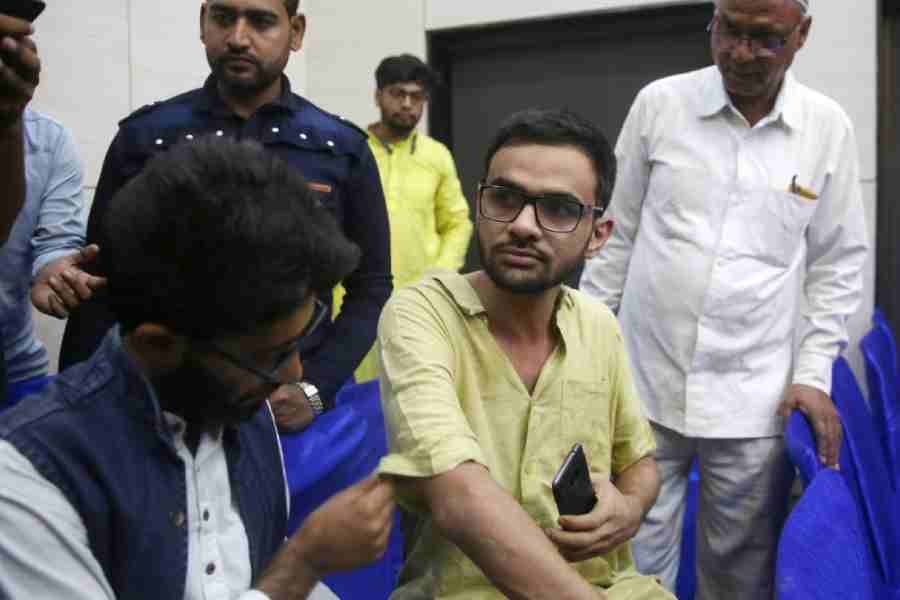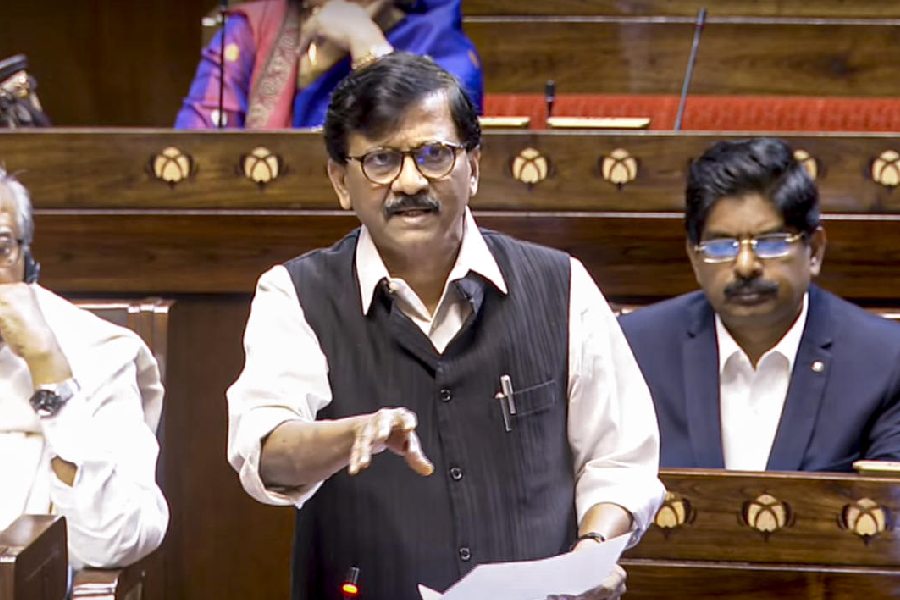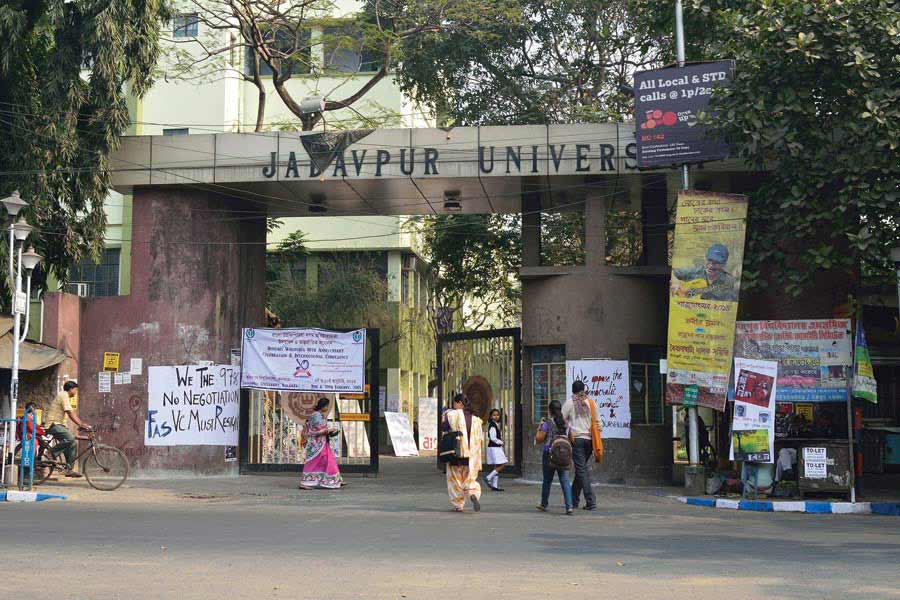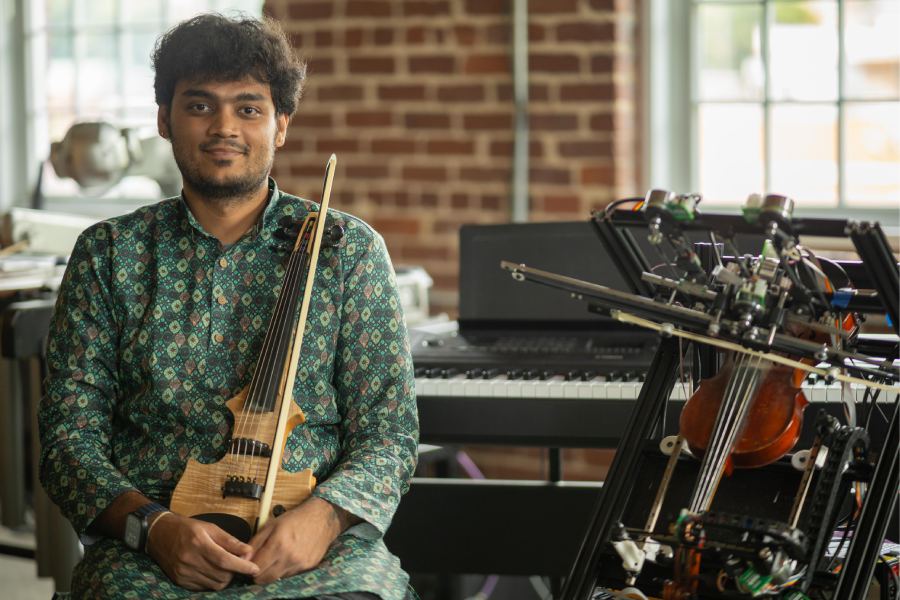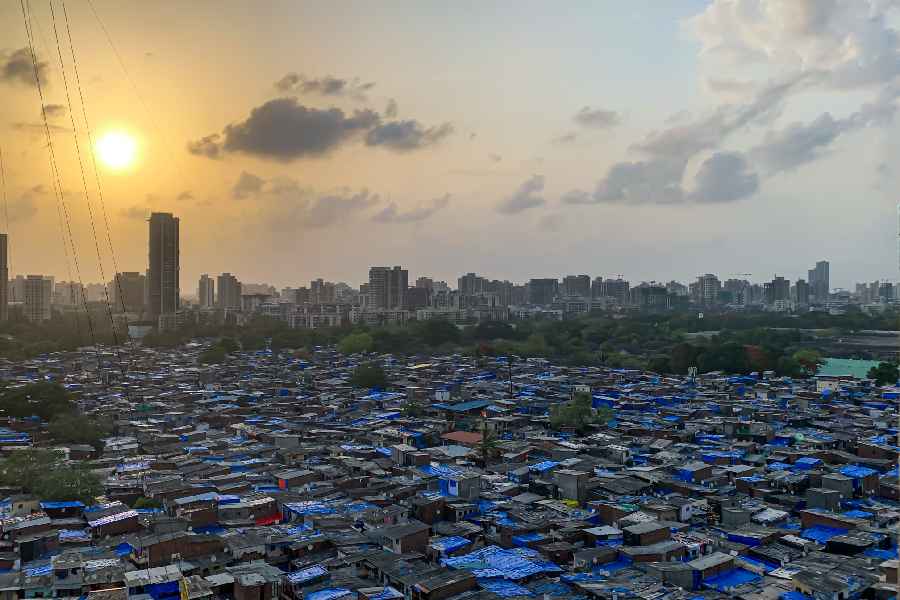To friend Banojyotsna Lahiri, the one-week bail to Umar Khalid is something to be “excited” about, and yet something too little.
“When you are very thirsty and you get just two drops of water — that’s how this interim bail is for him,” Lahiri said after meeting the undertrial prisoner at Tihar Prisons on Thursday.
Umar has been in jail since September 2020, awaiting trial in the Delhi riots conspiracy case. Of the 18 people chargesheeted in the case, six are out on bail. The charges are yet to be admitted by a court.
A Delhi trial court on Wednesday gave Umar a week’s interim bail, from December 28 to January 3, to attend a cousin’s wedding here.
“The last time he got a week’s interim bail, it felt like two days, but the pain lingered on for months, for him and us. In four years, it is difficult not to get despondent,” Lahiri
told The Telegraph.
The last interim bail Umar got was two years ago, for his sister’s wedding. Since then, several of his contemporaries have shifted out of Delhi in connection with work.
With a PhD in history from Jawaharlal Nehru University, Umar would probably have been teaching like them had he not got caught up in a sedition case for alleged sloganeering in JNU in 2016, followed by the riots case.
Also, in these two years, G.N. Saibaba — a man Umar looked up to — has passed away.
Saibaba, the former professor at Delhi University’s Ram Lal Anand College, had been arrested in 2014 on the charge of being a member of the banned CPI Maoist. Umar was among the many students and teachers who had protested his arrest.
In 2017, a trial court in Maharashtra found Saibaba and five others guilty of waging war against the government and convicted them under the anti-terrorism Unlawful Activities (Prevention) Act. They were acquitted this March. Saibaba died of post-operative complications at a Hyderabad hospital on October 13.
The passing of Saibaba and tribal rights defender Stan Swamy — who died in custody in 2021 — has led Umar to realise the value of life, “and how his life is being wasted because of this system”, Lahiri said.
She added: “We are all excited and he is also excited to come home even if it is just for seven days. There are wedding rituals and so on, so one can’t sit and spend as much time talking like one would like to.”
“While he is home,” Umar’s father S.Q.R. Ilyas told this newspaper, “we plan to give him good food, let all relatives meet him, and give him a tension-free time…. The last time he came home (in 2022), he did not sleep for three nights saying he wouldn’t waste time sleeping as he wanted to meet as many friends as possible.”
Ilyas added: “For bail, he has spent around one-and-a-half years in the lower courts, and around 10 months each in the high court and the Supreme Court. The result is the same — that there is a prima facie case against him and hence no bail.
“It troubles us that even charges have not been framed…. Everyone in Delhi knows he had nothing to do with the riots. He wasn’t even here at the time. If he spends 15 years in jail and is then acquitted, then who will be accountable?”
Umar is accused of giving a speech in Maharashtra in February 2020, asking people to protest against the new citizenship law, when then US President Donald Trump was visiting India. This was the time the Delhi riots began. It’s for this speech that he has been charged with violating the UAPA.
Section 43D(5 )of the UAPA disallows bail if there are “reasonable grounds for believing that the accusation against such person is prima facie true”.
Several retired judges of the higher courts have spoken out against this section, which makes bail practically impossible as evidence cannot be tested before a trial.
“A fellow inmate got parole for 20 days. When he returned, Umar asked, hadn’t he left just the day before?... Days, nights, weeks are all mashed up for Umar,” his friend Anirban Bhattacharya told this newspaper.
“When he went to jail, the measure of time was days, weeks, a month. Now his terms of reference are seasons.”
Returning to jail after his interim bail in 2022, Bhattacharya said, had been hard on Umar and his friends.
“The biggest difficulty in jail is the lack of meaningful conversation…. From 7pm after dinner, until midnight, he can’t sleep easily. There is no one to talk to. He reads profusely but you can’t do that endlessly,” Bhattacharya said.
“But around 10pm, a couple of cats started coming to his cell. He now waits for them eagerly and spends around half an hour to 45 minutes with them. He then goes to sleep. On days they don’t come, he gets anxious.”
The bail order prohibits Umar from using social media, restricts his interactions to those with family and friends, and confines him to his home and the places where the marriage ceremonies will take place.

